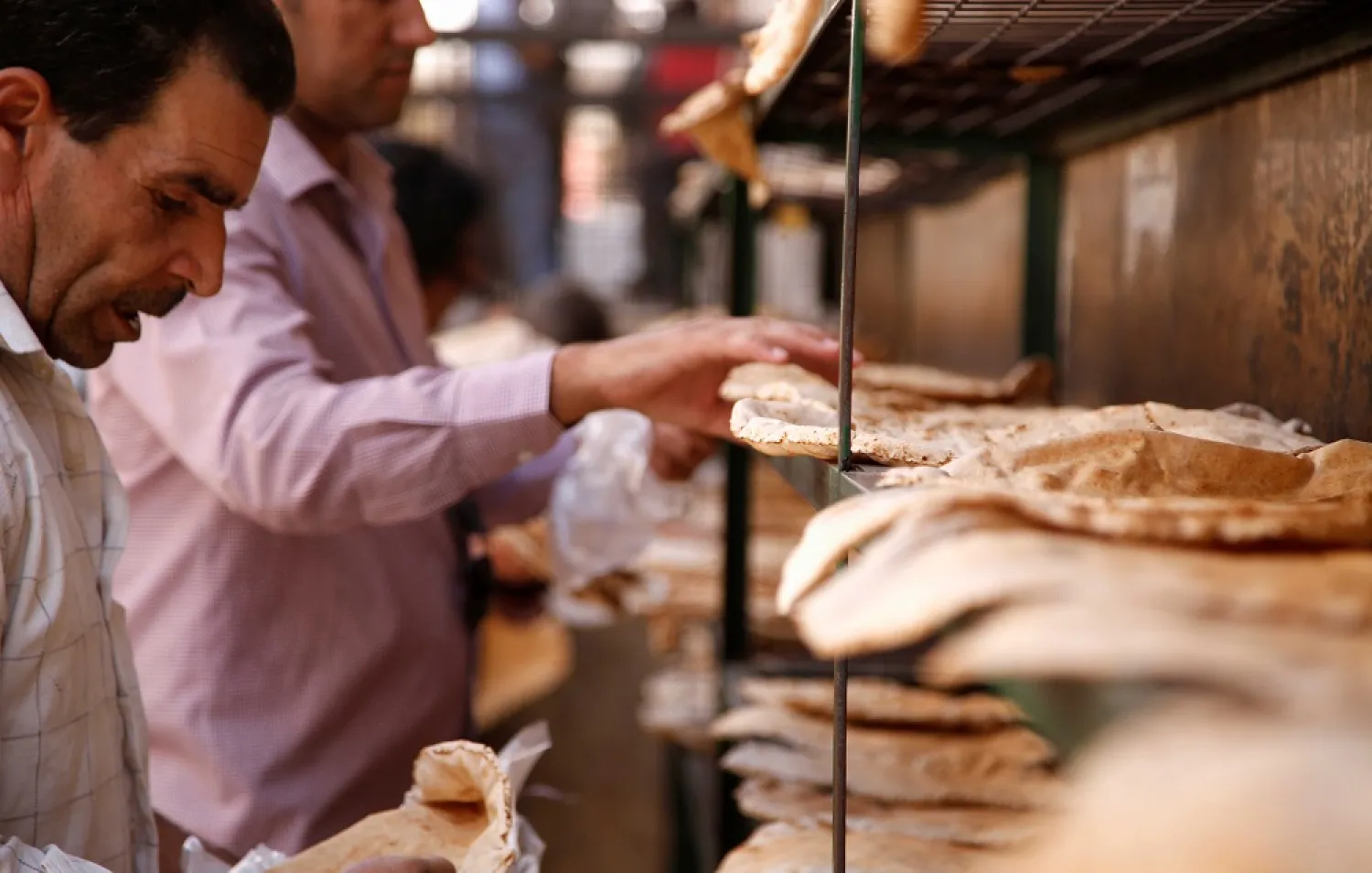The Syrian government ordered that daily family bread rations be reduced after failing to provide subsidized bread and gasoline to the people. The move sparked outrage among the public, who accused Damascus of “starving” the people to cover up for its shortcomings.
The state news agency SANA announced a new mechanism for people to buy bread that went into effect on Saturday. A family of one or two people will be allowed one packet of bread per day, while a family of three or four will be allowed two. A family of five or six will be allowed three and a family of seven or more will be allowed four.
Prior to the new decision, families all received four packets of bread.
The decision applied to all bakeries in Damascus, the Damascus countryside and Latakia.
The government said the move was part of its efforts to “fairly” meet the needs of the people and “prevent the manipulation of bread prices”.
In recent weeks, government-held regions in Syria have seen people, who are already suffering from poverty due to years of war, clamoring to secure bread at subsidized prices. Queues not seen in nine years of war would line up at bakeries. Many bakeries have also been forced to close due to a flour shortage.
The price of an eight-loaf packet of subsidized bread is sold at 50 pounds. The same packet is sold at 500 pounds on the black market.
The government’s latest move sparked ire on the streets. A teacher told Asharq Al-Awsat: “They claim that they are seeking fairness and preventing price manipulation, but the truth is clear to see. The government is seeking to cover its shortcomings at the expense of the people.”
He said some families have become so impoverished that they can only rely on government subsidies. Very few families can afford a 500-pound packet of bread, he added.
The United Nations estimates that 87 percent of people in government-held territories are living under the poverty line. Their income is no more than 60,000 pounds, while a family of five needs at least 500,000 pounds to support itself.
Prior to the eruption of the conflict in 2011, Syria used to produce 4 million tons of wheat per year, of which 1.5 million tons was exported. According to the UN, Syria produced 1.2 million tons of wheat in 2019, the lowest figure in 29 years. Government-held regions need 1 to 1.5 million tons of wheat.
The regions of al-Jazira, Hasaka, Deir Ezzor and Raqqa, all of which are now controlled by the Kurdish Syrian Democratic Forces, as well as Aleppo, produce the bulk of Syria’s wheat for the country’s 23 million people.
Gasoline shortage
On top of a bread crisis, the people also have to contend with a severe gasoline shortage that has led to long queues of cars lined up at gas stations. Amid the hardship, some Syrians have joked that the country should enter the record books for the longest queues at stations.
The government has limited private vehicles to 30 liters of gasoline every four days, with residents saying hundreds of motorists wait for hours before gas stations are opened.
The shortages were worsened by major maintenance at the Baniyas refinery, the country’s largest, which supplied two-thirds of the country’s gasoline needs, said oil minister Bassam Touma.
Touma said once unavoidable maintenance work at the 130,000 barrel per day capacity refinery had been completed in the next 10 days, capacity would rise by 25%. Shipments from several undisclosed sources would also help ease the crisis later this month, he added.
Oil production collapsed after Damascus lost most of its oil producing fields in a stretch east of the Euphrates River in Deir Ezzor. These oil fields are now in the hands of US backed SDF, who continue to sell part of the oil to Damascus.
Syria had previously relied on Iranian oil shipments but tightening sanctions on Iran, Syria and their allies have dried up supplies in the past year.
Oil traders say oil imports through Beirut port, a major conduit, have also been disrupted in the wake of a major explosion last August.
Washington has long accused Syria of smuggling oil through Lebanon across a porous border area where Damascus’s ally Iranian-backed Hezbollah holds sway.
A shortfall in foreign currency had also forced Damascus to import less fuel in the last two months, further worsening supplies, two traders said.














